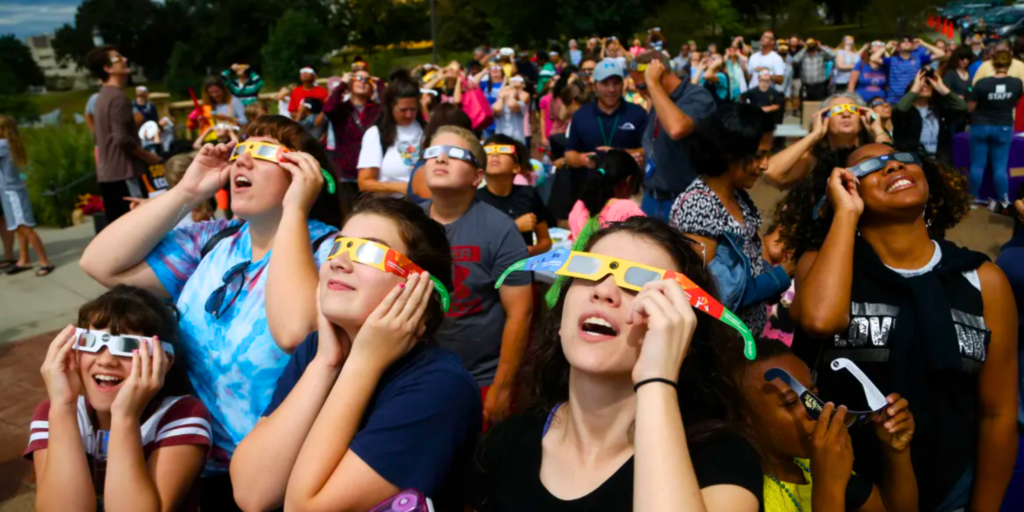Back-to-School Pacing Tips for OpenSciEd Classrooms
Back-to-School Pacing Tips for OpenSciEd Classrooms

Quick Take: Pacing is one of the most common challenges teachers face when first diving into OpenSciEd. Lessons designed for deep, student-driven sensemaking often take longer than expected, but that’s by design. To help teachers navigate this shift, OpenSciEd has released a new on-demand video: Pacing Tips for Your First Time Through.
In this resource, you’ll learn four practical moves for managing pacing: focus on the goal, use a timer with intention, trust the spiral of learning, and capture reflections for next time. The video, part of the Daily Teaching Moves collection in the On-Demand Teacher Support Library, shows how these strategies keep units moving forward without losing depth. You’ll also see how Quick Start Guides provide helpful “fast facts” for planning your semester with confidence.
As a new school year begins, many teachers dive into OpenSciEd excited by the powerful, phenomenon and problem-driven units, only to quickly realize a common challenge: pacing.
If you’ve ever found yourself halfway through a lesson thinking “There’s no way I’ll finish this in time,” you’re not alone. A 15-minute discussion can stretch into 25, and what was supposed to be a one-day activity can spill into the next. That can feel challenging–especially if you’re used to tight, efficient pacing.
Here’s the key reminder: OpenSciEd asks students to do something different, so it requires us to teach differently too. It’s not slower for the sake of being slow. It’s slower because it’s deeper–students are making sense of phenomena, not just receiving information or memorizing facts. Want to see what that looks like in action? Check out this video from OpenSciEd to hear how teachers and students describe the power of slowing down for deeper learning.
A New Resource: Pacing Tips for Your First Time Through
Struggling with pacing in OpenSciEd? This video shows why that’s normal, and how to keep things moving without losing depth. OpenSciEd has released a new on-demand teacher support video in the On-Demand Teacher Support Library: 👉 Watch the video here.
The video highlights four teacher-tested pacing moves:
- Know the goal. Instead of trying to “cover everything,” zero in on the key idea students need from each activity to keep the storyline moving. Sometimes a few surfaced ideas are enough–you don’t need to hear from every single student in every moment.
- Use a timer. Not to stay rigid, but to stay intentional. If the suggested time is 10 minutes, consider wrapping by 20. When the timer goes off, pause to check: are we close enough to the goal to move on, or is this a moment worth extending?
- Trust the spiral. OpenSciEd revisits ideas again and again. That means you don’t need to push for full mastery every time an idea shows up. It’s okay to pause and move on, even if questions are still open, because students will revisit, refine, and deepen their thinking later.
- Capture the moment. Make quick notes when things take longer than expected or when students get stuck in surprising places. Those reflections are invaluable for adjusting tomorrow’s lesson and for the next time you teach the unit.
The video emphasizes that pacing is about the long game. You’re not behind–you’re building something deeper with your students. As described in the video, “You are not just pacing a single lesson- you are pacing a learning journey!”
Where to Find the Video in the On-Demand Teacher Support Library
If you’re ready to dive in, you can find the 4 Tips for Pacing video in the OpenSciEd On-Demand Teacher Support Library under the Daily Teaching Moves collection.
The Daily Teaching Moves section is designed to give teachers quick, practical strategies that can immediately be applied in the classroom–like facilitating discussions, navigating storylines, and, of course, managing pacing.
👉 Explore the pacing video and more at the Daily Teaching Moves library here.
This is a great space to bookmark and revisit throughout the year whenever you need fresh ideas or reminders to keep your OpenSciEd lessons running smoothly.
Reminder! Use the Quick Start Guides for Support with Pacing
Another helpful pacing tool is tucked right into the OpenSciEd Quick Start Guides.
Each unit has a section called “Unit Fast Facts for Planning,” which spells out:
- The total number of lessons in the unit
- The estimated number of days needed for the full storyline
These Fast Facts are perfect for mapping out your semester and setting realistic expectations. They also help you see where to build in flexible time, knowing that student-driven discussions can sometimes take longer than planned.
Pacing with Confidence
Pacing will always be a balancing act in classrooms that prioritize student thinking. But with strategies like focusing on the goal, using timers, trusting the spiral, and capturing moments of reflection, alongside tools like the Quick Start Guides, you’ll be able to keep your units moving forward without losing the depth that makes OpenSciEd so powerful.
Here’s to a new school year of discovery, sensemaking, and just the right pace.
Additional Resources:
About the Author: Rebecca Garelli
Rebecca Garelli has been a professional educator for 19 years, focusing much of her career on teaching middle school math, science, and engineering in both Chicago and Phoenix. She has also been a science education consultant since 2009 and freelance science curriculum writer since 2015. Formerly, she was the Science & STEM Specialist for the Arizona Department of Education from 2019-2023, was a Lead Next Generation Science Standards (NGSS) Instructional Coach for the NGSS Collaborative in Chicago, and Adjunct Faculty member of DePaul University’s STEM Center where she taught graduate-level seminars on the NGSS.
Additionally, Rebecca currently writes NGSS curriculum and assessments for a variety of projects, provides professional learning nationwide as a full-time consultant, and is a member of the OpenSciEd National Facilitator Team. Rebecca is also currently serving a second 3-year term on the National Science Teaching Association (NSTA) Professional Learning in Science Education Committee. Rebecca is also a Professional Learning Facilitator for Activate Learning.
Rebecca earned a B.S. in Elementary Education from DePaul University, an M.Ed. in Science Education from Loyola University Chicago, is a Next Generation Science Exemplar (NGSX) Facilitator, and an Advanced Facilitator Credential from the Waters Center for Systems Thinking.
* * * * * * *








